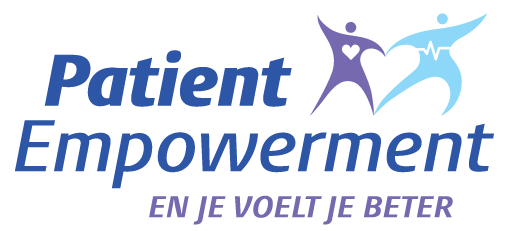Literatuur & Aanbevolen lectuur over Patient Empowerment
Agner, J., & Braun, K. L. (2018). Patient empowerment: A critique of individualism and systematic review of patient perspectives. Patient Education and Counseling, 101(12), 2054-2064. doi: https://doi.org/10.1016/j.pec.2018.07.026
Anderson, R. M., & Funnell, M. M. Patient empowerment: Myths and misconceptions. Patient Education and Counseling, 79(3), 277-282. doi:10.1016/j.pec.2009.07.025
Aujoulat, I., d’Hoore, W., & Deccache, A. (2007). Patient empowerment in theory and practice: Polysemy or cacophony? Patient Education and Counseling, 66, 13–20.
Bos, L. (2012). Patient Empowerment: A Two Way Road. In N. Wickramasinghe, R. Bali, R. Suomi, & S. Kirn (Eds.), Critical Issues for the Development of Sustainable E-health Solutions (pp. 203-227): Springer New York.
Castro, E. M., et al. (2016). “Patient empowerment, patient participation and patient-centeredness in hospital care: A concept analysis based on a literature review.” Patient Education and Counseling 99(12): 1923-1939.
Cornish, P. A. (2012). The Contribution of Synergy to the Experience of Empowerment. In R. Katz & S. Murphy-Shigematsu (Eds.), Synergy, Healing, and Empowerment: Insights from Cultural Diversity (pp. 241-256). Calgary: Brush Education.
Eeckman, E. (2019). Balanceren tussen macht en onmacht: Patient Empowerment als grondslag tot gelijkwaardigheid in de relatie patiënt-arts. Brussel: Politeia.
Eeckman, E. (2018). Power to the patient? Studying the power balance between patient and GP in relation to Web health information. (Doctor), VUB, Brussels – www.edgardeeckman.be
Eeckman, E. (2019). Power to the patient? Studying the balance of power between patient and GP in relation to Web health information. Communication as the intersection of the old and the new: the intellectual work of the 2018 European Media and Communication Doctoral Summer School. N. Carpentier, F. Colombo, R. Kilborn et al. Bremen, Lumière: 185-198.
Fitzsimons, S. and R. Fuller (2002). “Empowerment and its implications for clinical practice in mental health: A review.” Journal of Mental Health 11(5): 481-499.
Hamelink, C. (1995). World Communication: Disempowerment & Self-Empowerment. London: Zed Books.
Hess, R. (1984). Thoughts on Empowerment. In J. Rappaport, C. Swift, & R. Hess (Eds.), Studies in Empowerment: Steps Toward Understanding and Action (pp. 227-230). New York: The Haworth Press.
Kaler, J. (1999). Does Empowerment Empower? In J. J. Quinn & P. W. F. Davies (Eds.), Ethics and Empowerment (pp. 90-114). Hampshire: MacMillan Press.
Laverack, G. (2009). Public Health: Power, Empowerment and Professional Practice (2 ed.). Basingstoke: Palgrave Macmillan.
McLaughlin, K. (2016). Empowerment: A critique. Abingdon: Routledge.
Neville, D. (2004). Putting Empowerment into Practice: Turning rhetoric into reality. London: Whiting & Birch.
Stewart, A. M. (1996). Empowerment: Inspireren tot zelfsturing. Groningen: BoekWerk.
Swift, C. and G. Levin (1987). “Empowerment: An emerging mental health technology.” The Journal of Primary Prevention 8(1): 71-94.
Thompson, N. (2007). Power and Empowerment. Dorset: Russell House Publishing.
Tones, K. (1998). Empowerment for Health: the challenge. In S. Kendall (Ed.), Health and Empowerment (pp. 185-204). London: Arnold.
Townsend, E. (1998). Good Intentions OverRuled: A Critique of Empowerment in the Routine Organization of Mental Health Services. Toronto: University of Toronto Press. Wendt, R. F. (2001). The Paradox of Empowerment: Suspended Power and the Possibility of Resistance. Westport: Praeger Publishers.
Dit is slechts een greep uit de publicaties rond Patient Empowerment. Meer informatie over deze literatuur, kan bekomen worden via de vzw.

